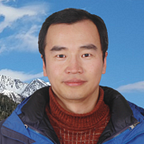There are different types of truth, and their value varies widely. Psychology, for example, reveals only the secrets of the human mind. Biology uncovers a wider range of facts than psychology, as it studies all living beings. Physics deals with universal truths, since its laws govern the universe. The more universal a truth is, the more valuable it is.
Demonstrability is the foundation of truth. Charles Darwin developed the theory of evolution from his collection of specimens. Evidence for evolution also exists in fossil history. Today, modern genetics shows that all life forms descended from a first cell, ultimately proving that plants and animals, including humans, evolved from the first cell. Once the truth is discovered, everything related to it falls into place.
Simplicity is the beauty of truth. Ptolemy’s Earth-centered system can predict the position of the planets in reasonable agreement with observations, but it is more complicated than Copernicus’ Sun-centered system, because Ptolemy had to introduce assumptions for the retrograde motions of planets such as Mars. The simpler a theory is, the closer it is to the truth.
Truth is sometimes derivable and always makes sense. Kepler’s third law and Newton’s law of universal gravitation can indeed be derived from each other. The law of conservation of energy makes sense, just as it’s impossible to get something for nothing. The more truths we have, the easier it is to make the world a better place. We need more truth seekers to make discoveries, find the meaning of life and unravel the mystery of the cosmos.
Most importantly, the accumulation of truths could lead us to intelligent evolution and pave the way to solving all existential threats to humanity, such as man-made climate change. I propose copyright reform and voluntary payment to make truth seekers.
